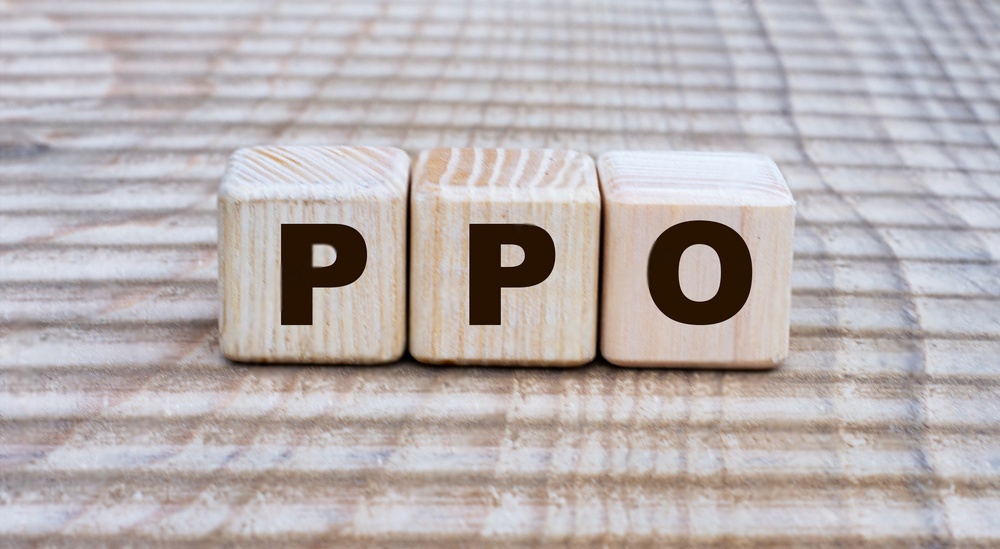
What Is ESPP on Paystub?
Are you looking to invest directly in your organization and wondering, ‘What is ESPP on paystub'?
Aug 01, 2024Ever glanced at your paystub and wondered, "What does PPO on a paystub mean?" You're not alone! Join us on this enlightening journey as we break down this frequently asked question about how a customized healthcare plan along with its benefits and deductions appear on your paystub.

Ever glanced at your paystub and wondered, "What does PPO on a paystub mean?" You're not alone! Join us on this enlightening journey as we break down this frequently asked question about how a customized healthcare plan along with its benefits and deductions appear on your paystub. What this article covers:
The term PPO on your paystub stands for Preferred Provider Organization. It's a healthcare insurance plan that allows members to visit any healthcare provider of their choice, whether in-network or out-of-network.
Drawing from our experience, PPOs provide flexibility, leaving you free to continue seeing your favorite dentist even if they aren't in your insurance network. It just means that you might pay a bit more out of your own pocket in the process. Whether you're an employee trying to decipher PPO-esque terminology in your paystub or an employer needing to make paystubs for your employees to account for PPO benefits and deductions, they all come together in the intricate world of payroll. 
PPOs can apply to anyone who opts for this form of health insurance. Typically, people who want the freedom to choose their healthcare providers without referrals prefer PPOs. People who can benefit the most from PPOs are:
You need to understand your paycheck stub's abbreviations and deductions for a multitude of reasons, and not only because of a PPO in relation to healthcare insurance. Have you ever seen a severance pay stub ? Or wondered about SS pay stubs direct deposit ? These concepts can intertwine with PPOs in some unique scenarios, illustrating the vast world of payroll and its many facets. A clear understanding of your paycheck stub is crucial.. Here's why:
At the heart of every paycheck stub is a reflection of your hard work. Knowing and understanding each component ensures you're well-informed about your earnings and how they're being distributed.
Deductions can sometimes come as surprises, especially if you're unsure what they're for. Ever asked yourself, " What does TPAF contributory insurance mean on a pay stub ?" Or scratching your head over terms like " STD 100 pay stub "? These aren't just random terms; they represent specific deductions or contributions on your paycheck that can be related to your PPO.
Mistakes can happen, even in payroll. Familiarizing yourself with your paycheck stub's abbreviations and deductions allows you to spot potential errors. If something seems off, you'll be better positioned to address it.
Many of your benefits, like health insurance or retirement contributions, are often reflected on your pay stub. Understanding these elements ensures you're getting all the perks your employer offers. 
Let's consider and answer some frequently asked questions about PPOs.
PPOs have many benefits over other insurance types. Ultimately, it means you aren't tied down to an in-network provider, giving you the freedom to see any doctor without needing referrals.
Your HR department or paystub can provide you with this information on whether your employer offers a PPO.
PPO plans can be more expensive than other insurance types. They typically come with higher monthly premiums than other insurance plans, like HMOs. However, the flexibility they offer often justifies the cost for many. Remember, your best insurance plan depends on your specific health needs and budget.
No, you don't need to select a Primary Care Physician (PCP) with a PPO. That's what's useful about PPOs - you can see any doctor or specialist you want without needing a referral.
There you have it! Now, you know exactly how to customize your healthcare plans using a PPO and account for every related benefit and deduction on your paystub. At Check Stub Maker , we've seen countless paystubs and answered many payroll questions, like PPO-related scenarios, since 2014, so we know what we're talking about. Our mission is to simplify payroll, making it more accessible and understandable for everyone. We recommend always staying informed and reaching out for clarity when needed. After all, knowledge is power, especially when it comes to your hard-earned money! And if you want to create pay stubs that are easy to understand, you know where to start. If you want to learn more, why not check out these articles below:

Are you looking to invest directly in your organization and wondering, ‘What is ESPP on paystub'?
Aug 01, 2024
When you see ‘TB Life' on your pay stub, it's natural to wonder “What is Life TB on pay stub?”.
Aug 28, 2024
Wondering how to find annual income on paystub? All you have to do is check the 'summary' section of your paystubs to see a breakdown of your annual income, including earnings and deductions.
Aug 28, 2024